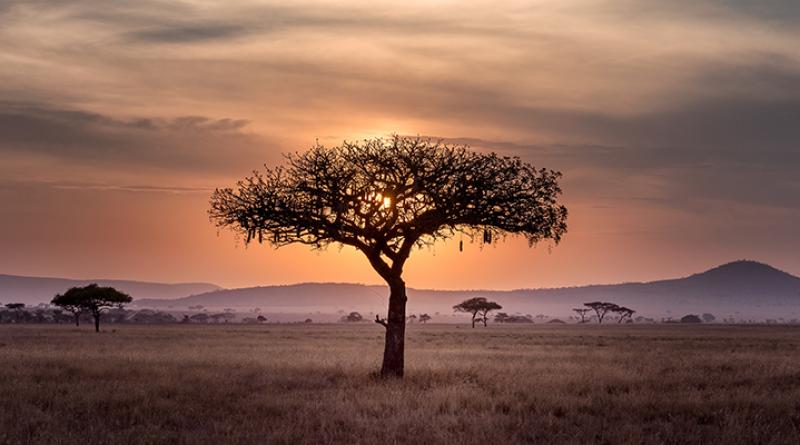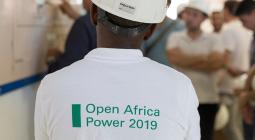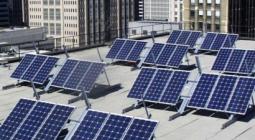Renewable news from East Africa.

Regulator approves Kenya’s first green bond
Kenyan investors will soon begin trading in green bonds.
CMA chief executive Paul Muthaura
This is after the Capital Markets Authority (CMA) yesterday gave the nod for the issuance of the country’s first unlisted green bond the bond will be listed by investment firm Acorn and is structured as a restricted public offer. “The green bond seeks to raise Sh5 billion to finance sustainable and climate-resilient student accommodation,” said CMA Chief Executive Paul Muthaura in a notice.
“Being a restricted public offer, the issuer will raise the funds from only targeted sophisticated investors.”
Green bonds are security instruments aimed at facilitating investors to raise funds towards projects that are environmentally friendly, including renewable energy and eco-friendly transport grids.
The green bond market globally has grown tremendously with issuances totaling $155.5 billion (Sh16 trillion) in 2017 and an estimated $250-$300 billion (Sh25.7-31 trillion) last year.
Donor agencies
Kenya launched its green energy programme in 2017, with the Government initially setting the 2018/2019 financial year for the first publicly traded green energy bond.
The Government together with the Kenya Bankers Association, Central Bank of Kenya, Nairobi Securities Exchange, Financial Sector Deepening (FSD) Kenya and a host of other donor agencies last year released the Green Bonds Kenya Annual Report.
Egyptian company to build solar PV plants in select African countries
An Egyptian state-owned company, Arab Industrialization Organization (AOI) has announced that it will launch solar power plants in Uganda, Congo, Tanzania, Eritrea, Somalia and Southern Sudan, with capacities ranging from 2 to 4MW.
The company will be responsible for the design, financing, construction and operation of the plants.The projects will produce electricity as well as desalination plants in targeted countries
Egypt leads the renewable energy revolution
Egypt boasts one of the most progressive renewable energy programmes in Africa, which has seen one of the world’s biggest solar parks come to fruition.
The Benban solar complex located in the city of Aswan in southeastern Egypt is one of the largest of its kind in the world at 1.65GW and is set to be completed by year-end.
The North African company also recently commissioned the 200MW Suez wind farm.
A second 252MW wind project recently achieved financial close
Kikagati hydropower station achieves financial close
The 14MW Kikagati hydropower station being built on the border between Uganda and Tanzania has reached financial close, Emerging Africa Infrastructure Fund (EAIF) announced.
This milestone means the first tranche of debt funding has been released to the Kikagati Power Company (KPC), which will own and operate the plant when construction is complete.
The announcement of the financial close of the $54 million debt finance package for the Kikagati hydro-electricity station brings closer a new source of electricity that will be equally shared between Uganda and Tanzania.
The plant is located on the Kagera River, which is on the border between the two nations.
One hundred per cent of the energy generated by KPC will be bought by the Uganda Electricity Transmission Company Limited, Uganda’s single-buyer and transmission organisation, which will then sell half the energy on to Tanzania.
EAIF executive director, Emilio Cattaneo, commented: “Kikagati hydropower station is the 10threnewable energy plant that the EAIF has supported in Uganda. EAIF was a pioneer in financing private sector renewable energy projects in Africa.”
Cattaneo added: “We are helping companies and countries stimulate long-term economic development impact on business growth, jobs and skills and contributing to weakening the grip of poverty on communities.”
A global drinks giant is spending over $200 million to build “green” breweries in Africa
Diageo, the British owner of iconic brands including Guinness and Johnny Walker, is going green at brewing sites across Africa with an ambitious $218 million investment drive.
The beverages multinational will overhaul the electricity mix at its African brewing sites across the continent and install solar power, biomass boilers and new water recovery equipment. The spending consists of an initial $60 million upfront investment in equipment and installation with $158 million earmarked for long-term maintenance and operations costs.
The plan will see Diageo switch to renewable energy at three breweries in Kenya and Uganda, adopting biomass boilers which will use sustainable fuel alternatives “such as wood chip, bamboo and rice husks” to create steam power. It will also install new water recovery and solar power systems—to account for 20% of electricity demand—at several sites across brewery sites on the continent.
The large-scale environmental plans will use biomass boilers to help cut Diageo’s carbon emissions by 42,000 tonnes a year while new water recovery equipment is projected to save over two billion cubic liters annually. Those are important benefits given African cities are among the most vulnerable to climate change globally.
There’s also the added impact on jobs as Diageo’s breweries will depend on local suppliers for biomass fuel for its new boilers. It’s in keeping with broad trends seen on the continent with renewable energy companies already creating jobs at a scale comparable totraditional utilities.
In addition to any long-term energy cost savings, Diageo’s renewable energy investment at its African breweries also has the important side benefit of highlighting its corporate social responsibility agenda as a major global corporation operating in some of the world’s poorer economies. Last financial year Diageo generated $16.6 billion in annual revenue.
The plans are a key commitment in one of Diageo’s most important market with the continent currently accounting for 13% of its global sales. And there’s potential for significant upside as Africa’s $13 billion beer market is the fastest growing globally.
But the increased focus of global brewers targeting market share in Africa (in some cases by producing both premium beer brands and locally brewed low-end options), also comes with the risk of alcohol-related health problems as the African market is doubly attractive for brewers given weaker regulation for sales and advertising compared to western markets
https://qz.com/africa/1682386/diageo-bets-218-million-on-renewable-energy-at-african-breweries/
After Garden City carport, firms to power Abuja mall with solar
Garden City Mall, Nairobi, is home to Africa’s largest solar carport, thanks to a collaboration between Actis and CrossBoundary Energy (CBE). And recently, the two firms announced an agreement to make a Nigerian mall solar powered.
“CBE will finance the 600kW rooftop solar plant and will sell power to Jabi Lake Mall through an innovative 15-year Power Purchase Agreement. The power offers a cheaper energy alternative and will reduce the shopping centre’s CO2 (carbon dioxide) emissions by over 13,000 tonnes,” said a statement on the agreement. The mall was developed by Actis.
“Recognizing our responsibility to wider society is central to our business and embedded into our investment processes. Cheaper and cleaner power through solar provides an unmissable commercial and environmental opportunity and is fundamentally aligned to Actis’ belief that values drive value,” James Mittell, Principal in Actis’ Energy Investment Team, said.
At the same time, Actis announced last week that they have acquired BioTherm Energy (BioTherm) – a South Africa-based, pan-African renewable energy businesses – from Denham Capital, a global private equity firm.
This transaction follows Actis’ recent acquisition of Kipeto Energy, Kenya’s second largest wind power project, which it brought to financial close late last year.
CBEA lets loose first $5.5 million for 60 minigrids in Tanzania
Crossboundary Energy Access (CBEA) was established in January with large investment contributions from Rockefeller and Shell Foundations. The funding facility, which said it would work to unlock $11 billion in funding for the electrification of 100 million people in Africa, has penciled its first transaction with PowerGen Renewable Energy.
As villages are often far apart, establishing a comprehensive grid connection has proved challenging so far. With mini-grid technology each villgae could cover its own demand and undercut prices of grid expansion
Crossboundary Energy Access (CBEA) claims to be Africa’s first financing facility set up for the development of mini-grids. Estbalished in January of this year, CBEA has just announced its first transaction. Its initial $5.5 million investment will support the development of 60 mini-grids in Tanzania to serve approximately 34,000 people in rural areas.
The funding facility, established via investments from the Rockefeller Foundation and oil major Shell Foundation, inked a $3 million loan agreement with the Renewable Energy Performance Platform (REPP), a UK government-backed funding platform managed by Camco Clean Energy. According to the new transaction announcement, REPP will provide a long-term senior loan, which is structured as project finance debt. As part of the joint financing scheme, PowerGen Renewable Energy will develop the 60 mini-grids, and soon after completion, will sell the mini-grids to CBEA.
The approach will allow CBEA will serve as the long-term owner, and PowerGen to recycle capital and focus on developing more projects. Both companies will maintain a stake in the projects’ success, as PowerGen will continue to maintain and operate the systems.
Historically, minigrid assets had been considered too small to attract long-term financing at reasonable conditions. CBEA was established to provide long-term financing for mini-grids in Africa on a project finance basis. Such type of financing had previously only been used to realize large-scale solar projects. The overarching fund seeks to unlock $11 billion to establish electrification of 100 million people. CBEA said its initial focus will be on markets with supporting regulatory frameworks, such as Tanzania, Nigeria, and Zambia.
“This first investment for CrossBoundary Energy Access is a significant step towards unlocking the private and public capital needed to scale the mini-grid sector,” stated Matt Tilleard, co-managing partner of Crossboundary Energy Access. “At Crossboundary, we believe that distributed renewables will be crucial to powering African homes, businesses, and industries. Our role is to mobilize the financing to make it happen.”
There are some 600,000 people in Sub-Saharan Africa who are currently living without electricity, marking the lowest electrification rate in the world with less than 43%. In a July 2018 report, Frost & Sullivan attested that 80% of the households without access to electricity in Sub-Saharan Africa are located in rural areas. In West Africa alone, IRENA identified a PV potential of 20 GW by 2030 to bring electricity to these rural homes, at costs more competitive than a grid connection.
TANZANIA: Don Bosco Vocational Training Centers in Dodoma and Iringa training 260 students in renewable energy
Don Bosco Vocational Training Centers in Dar es Salaam, Dodoma and Iringa in Tanzania have been working to advance each center’s ability to provide technical and vocational training in renewable energy. To date, 260 students are accessing renewable energy training at Don Bosco Vocational Training Centers in Dodoma and Iringa. These includes both male and female students.
Don Bosco Oysterbay in Dar es Salaam has been funded over the last two years through a partnership with Misereor, the German Catholic Bishops’ Organization for Development Cooperation, to help advance this training capacity.
Building off this work, the Charles Stewart Mott Foundation awarded a grant to Salesian Missions to fund the same training initiative at the Don Bosco training centers in Dodoma and Iringa. This has led to the establishment of training laboratories and the remodeling of the solar and electronic classes and workshops at the centers as well as the installation of training equipment and furniture and the development and training of instructors on the new syllabus. The projects are contributing to increased access to quality technical training on renewable energy in Tanzania.
As the world faces growing environmental degradation and climatic change challenges, there is a need to embrace sustainable development more than ever before. This has led to a need for leaders and practitioners of technical and vocational education and training to improve their understanding and implementation of education for sustainable development using a whole-institution approach to greening their institutions.
Sikitu Kichele Ngambi is a 29-year-old mother who grew up in the Kuriya tribe in Tanzania’s North Western region of Mara bordering Kenya. There, traditional practices are marginalizing women and men dominate the family. She says, “Previously before coming to Dodoma for electrical and solar energy education, I was a stay home young mother, whose basic role was to attend to all house chores and take care of my four children. I had no voice in the family nor any financial power. I dropped out from school and had lost hope. I wished to empower myself both intellectually and financially but did not know how.”
Ngambi was introduced to the Salesian electrical course by a friend who had heard about it on the radio. She joined in early 2016 and finished the course in October 2018. Through support from the Charles Mott Foundation, she was able to take the course for free.
“I am now confident in my ability to work as a solar expert with knowledge of the components and design of the different solar systems, battery and inventor usage thanks to the theory and practical lessons I took at the Salesian technical school,” adds Ngambi.
TANZANIA / UGANDA: KPCL completes project financing for Kikagati Dam Project
Emerging Africa Infrastructure Fund (EAIF), one of the project partners, announces that Kikagati Power Company Limited (KPCL) has completed the financing round for the Kikagati hydroelectric project on the Tanzania-Uganda border.
Kikagati Power Company (KPC), the ad hoc company developing the Kikagati hydroelectric power plant, has finalised the financing of its project. It is located in East Africa, on the border between Uganda and Tanzania. The announcement was made by Emerging Africa Infrastructure Fund (EAIF) of the Private Infrastructure Development Group (PIDG), a multi-donor organisation with members from seven European countries and the World Bank Group.
This financial institution invested $27 million in the Kikagati hydroelectric project. The Dutch Development Finance Corporation (FMO) also lent KPC $27 million.
The Kikagati hydroelectric project will require a total investment of $87 million. It will “strengthen the foundations of economic development in Uganda and Tanzania”, according to stakeholders.
The hydroelectric dam is built on the Kagera River, the largest tributary of Lake Victoria, which serves as the natural border between Tanzania and Uganda. On this 400 km long river, KPC engineers have been building an 8.5 m high and 300 m long dam since 2018. It will have a 4 km2 reservoir in Tanzanian territory. The water retention will allow the three 5.5 MW generators of the nearby power plant to operate. At the same time, a 33 kV transmission line will also be built.
This project is also supported by the Africa Renewable Energy Fund, a $205 million fund managed by Berkeley Energy. All loans contracted under this project will be repaid over a period of 16 years. KPC will sell the electricity generated by the plant to Uganda Electricity Transmission Company Limited. The Ugandan state-owned company, which is responsible for electricity distribution, will sell some of this energy to Tanzania Electric Supply Company Limited (Tanesco).
This project is part of the GetFit (Global Energy Transfer Feed-in Tariff) programme. It was set up by the European Union with the support of a number of its member governments. The main objective of the programme is to help East African countries “follow a low-carbon, climate-resilient development path” to promote growth, poverty reduction and climate change mitigation.
22 August 2019




